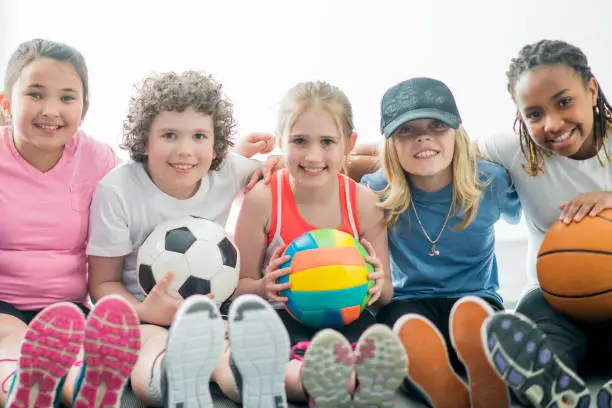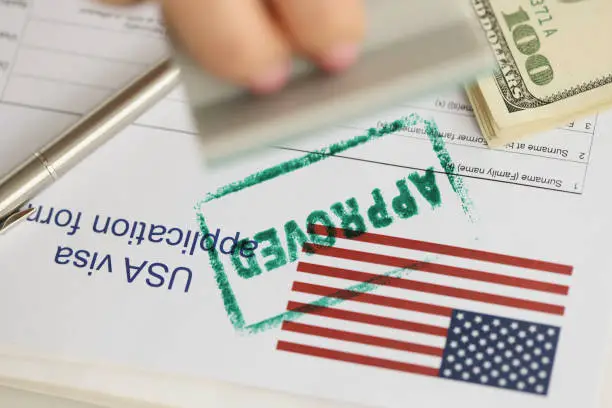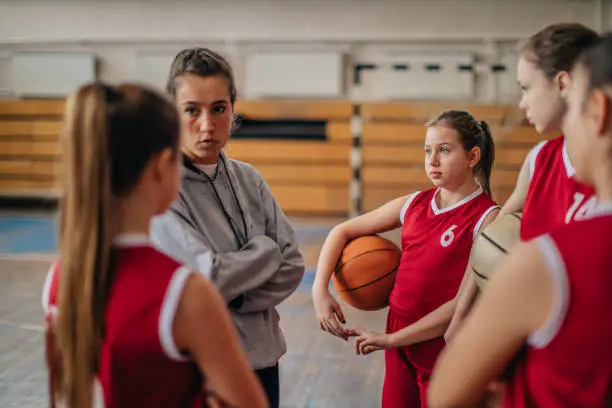The All Kids Play Grant was created to promote equal opportunities for children to engage in sports and recreational activities, regardless of their financial status.
This initiative recognizes that sports and recreation are not just fun activities—they are crucial for developing physical health, teamwork skills, self-discipline, and confidence. Through this grant, organizations can receive funding to offer scholarships, sports equipment, or even create new recreational programs for underserved youth populations.
In a world where budget constraints and resource limitations often hinder the expansion of youth programs, the All Kids Play Grant serves as a beacon of hope. The grant doesn’t just offer money; it offers potential.
It offers the possibility of healthier lifestyles, stronger community bonds, and brighter futures for the children it serves.
Who Can Apply for the All Kids Play Grant?
The All Kids Play Grant is available to a wide range of applicants, including:
- Nonprofit organizations focused on youth development.
- Schools and educational institutions offering extracurricular activities.
- Community centers providing recreational programs for children.
- Government-funded programs supporting children in underserved communities.
- Sports leagues and associations aiming to promote youth participation.
The core eligibility requirement is that the organization must be dedicated to providing recreational or sports opportunities for children. This could range from funding after-school programs to providing scholarships for youth sports teams.
Imagine a community center in a low-income neighborhood that dreams of offering a new soccer league. The lack of funds might have previously prevented them from buying uniforms, securing a coach, or even renting a safe field. The All Kids Play Grant can change that narrative, transforming dreams into reality.
How Much Funding is Available?
The amount of funding available through the All Kids Play Grant can vary depending on the scope and scale of the project. Typically, grants range from $1,000 to $50,000, depending on the size of the program and the number of children it will impact. Organizations that apply for this grant are encouraged to present a detailed plan on how the funds will be used to support children’s recreational activities.
Here are some common uses for the funding:
- Sports Equipment and Gear: Grants may be used to purchase necessary equipment, such as soccer balls, tennis rackets, or basketball hoops, ensuring that every child has access to quality tools for playing.
- Scholarships for Participation: The grant can fund scholarships for children from low-income families to ensure they can join youth leagues and programs without the financial burden.
- Facility Upgrades: Organizations can use funding to upgrade or build sports facilities, making them more accessible and welcoming to kids.
- Program Development: This grant can also be used to launch new sports and recreational programs that engage children and help them build important life skills.
In a study by The Aspen Institute, it was found that improved access to sports facilities directly correlates with increased youth engagement in physical activities. This engagement not only enhances physical health but also instills discipline and teamwork. Investing in facilities and equipment, therefore, yields long-term benefits that extend far beyond the playground.
Steps to Apply for the All Kids Play Grant
Applying for a grant might feel overwhelming at first, but breaking it down into manageable steps can make the process more straightforward. Let’s walk through these steps together:
- Research and Prepare Your Program Proposal
- The first step is understanding your community’s needs and creating a proposal that clearly addresses how the All Kids Play Grant will benefit the children you serve.
- Begin by conducting a needs assessment: survey your community, talk to parents, kids, and stakeholders to understand what sports or recreational activities are most desired or lacking.
- Be specific about your goals: for example, increasing soccer participation by 30% among local youth or creating a safe play environment that reduces injuries.
- Highlight how the grant will provide equitable access to sports and recreation for underserved youth.
- Create a Budget
- A detailed budget is crucial to show how the funding will be spent.
- Break down expenses into categories like equipment, facility rental, staffing, and program development.
- Use clear and common words found in successful grant applications such as “transparency,” “accountability,” and “sustainable impact” to ensure your budget conveys professionalism and foresight.
- Submit the Application
- Visit the grant’s official website to access the application forms. Many official sites also offer resources such as FAQs, application guidelines, and sample proposals.
- Fill out all sections carefully. Use a conversational tone where appropriate to convey passion and commitment without sacrificing professionalism.
- Provide any required documentation, such as proof of nonprofit status or financial statements, as missing documents can delay your application or lead to rejection.
- Follow Up
- After submitting your application, stay engaged with the funder. This can include sending follow-up emails or reaching out to ask for updates on the status of your application.
- Demonstrating your commitment by maintaining communication can help strengthen your relationship with the funder and may boost your chances of approval.
Common Mistakes to Avoid When Applying for Grants
When applying for grants like the All Kids Play Grant, organizations sometimes miss key elements in their applications. Here are some mistakes you should avoid to increase your chances of success:
- Incomplete Proposals: Ensure your application is comprehensive and covers all necessary aspects, including your goals, budget, and expected outcomes. Never submit a half-finished proposal; thoroughness is key.
- Lack of Clear Metrics: Funders want to see how their money will make a tangible difference. Be sure to outline specific metrics and outcomes you will measure to demonstrate the impact of your project.
- Not Providing Sufficient Community Data: Include data on how the grant will address specific needs in your community. This can include statistics about youth participation in sports or the lack of resources in your area. Data builds a compelling case.
- Overcomplicating the Proposal: While detail is important, avoid unnecessary jargon. Keep the language simple and clear so anyone reading it can understand your vision and plan.
How the All Kids Play Grant Makes an Impact
The All Kids Play Grant doesn’t just provide funding—it is part of a larger effort to create lasting social change by ensuring that every child, no matter their background, has the opportunity to play. Here are some ways it makes a difference:
- Equity in Access: The grant helps level the playing field for kids who might otherwise be excluded from sports and recreational activities due to financial constraints.
- Health Benefits: Encouraging children to engage in physical activity helps combat the rising issue of childhood obesity and promotes overall health and well-being.
- Community Building: Sports and recreation foster a sense of community and teamwork, helping children build friendships and valuable social skills.
- Academic and Behavioral Benefits: Participation in sports has been linked to improved grades, better concentration, and reduced dropout rates. Kids who play are more likely to stay in school and succeed academically.
Real-Life Success Stories
Let’s consider a couple of real-life scenarios where the All Kids Play Grant made a remarkable difference:
Case Study 1: Transforming a Local Community Center: A community center in a mid-sized city lacked the funds to maintain their aging basketball court. With the All Kids Play Grant, they were able to secure funding for new flooring, nets, and safety padding. The improved facility attracted more kids, tripling program enrollment within a year. Not only did this uplift the center’s reputation, but it also created a safer environment for kids to enjoy sports.
Case Study 2: Launching a New Youth Soccer Program: A small rural school district noticed a decline in student engagement after-school. Using the All Kids Play Grant, they were able to purchase uniforms, equipment, and hire a part-time coach to start a soccer program. Within a season, the program saw a 40% increase in student participation, and teachers reported improved student behavior and enthusiasm in the classroom.
These success stories underscore how targeted funding can transform communities and empower children.
Stats and Data to Consider
According to the National Alliance for Youth Sports (NAYS), approximately 60% of children in the U.S. do not have access to organized sports due to financial barriers. The All Kids Play Grant aims to address this by directly funding programs that ensure no child is left behind. In 2020 alone, over $3 million in grants were awarded to various organizations, providing sports opportunities for over 50,000 children.
A survey conducted by The Aspen Institute revealed that children who consistently participate in sports are 25% more likely to succeed academically and exhibit higher self-esteem compared to their peers who don’t have similar opportunities. Additionally, participation in team sports reduces risky behaviors by 27% among teenagers, showcasing the broad benefits that these programs can have.
Building a Strong Grant Proposal
Crafting a winning proposal goes beyond filling out forms; it involves telling a compelling story that resonates with funders. Here are a few tips to strengthen your proposal:
- Tell Your Story: Begin with a strong opening that captures attention. Use a narrative that highlights the challenges faced by the children in your community and how your program aims to overcome them.
- Showcase Community Support: Include letters of support from community leaders, parents, or other stakeholders. This demonstrates a collaborative effort and reinforces the community’s need for the program.
- Visual Aids: Incorporate charts, graphs, and photos where possible. Visual elements can make a compelling case by vividly portraying the current state and potential improvements.
- Clear Objectives and Outcomes: Define measurable outcomes. For example, “Increase sports participation by 50% within the first year” or “Reduce dropout rates by 15% through increased engagement.”
Why You Should Subscribe to the Grant Writing Academy Newsletter
If you’re looking to increase your chances of winning the All Kids Play Grant or any other funding opportunities, the Grant Writing Academy Newsletter is the perfect resource.
Every week, we share tips, strategies, and expert insights that will help you craft winning proposals. Whether you need templates, tools, or exclusive access to our in-depth resources, subscribing to our newsletter will provide everything you need to enhance your success rates.
By subscribing, you’ll also get access to:
- Proven Grant Writing Strategies: Learn the art of storytelling and how to align your proposal with funders’ objectives. Our strategies are based on what has worked for countless successful applications.
- Tools and Templates: Save time and avoid common pitfalls with ready-to-use templates and checklists that guide you through the writing process.
- Insights into Funding Trends: Stay ahead of the curve with updates on new grants, evolving criteria, and the best practices in the industry.
- Exclusive Webinars and Workshops: Participate in live sessions with grant writing experts who can answer your questions and provide personalized advice.
Subscribing is simple and free—just visit our newsletter signup page and enter your email. Don’t miss out on actionable insights that could be the key to unlocking your next grant.
Conclusion
The All Kids Play Grant is more than just a funding opportunity—it’s a catalyst for change in communities that need it most. It addresses disparities in access to sports and recreational activities, promotes physical and mental well-being, and paves the way for academic and personal growth. By breaking down financial barriers, it allows children from all backgrounds to experience the myriad benefits of play.
As you prepare your application, remember to research thoroughly, plan meticulously, and avoid common pitfalls. Use simple, clear language, support your proposal with relevant data and success stories, and most importantly, let your passion for creating positive change shine through.
And don’t forget—subscribing to the Grant Writing Academy Newsletter can provide you with the insights, resources, and support you need to craft a winning proposal. Get expert tips, templates, and the latest strategies delivered straight to your inbox, and take your grant writing skills to the next level.
Together, we can ensure that all kids play, learn, and grow in a healthy, supportive environment. Subscribe today and be part of a community dedicated to making a difference—one grant at a time!
Additional Resources and Support
a) Expand Your Knowledge
The grant writing field is always evolving. Keep learning and improving your skills to stay competitive.
Recommended Resources:
- Request for Proposal Success: How to Write Proposals That Win: Learn the techniques and strategies to create standout proposals.
- Tech Startup Funding Secrets: Navigating Grants for Maximum Growth: Perfect for those in the tech sector looking to leverage grants for scaling.
- Grant Proposal Guide for Environmental Projects: Tailored for environmental initiatives seeking to secure impactful funding.
- The Ultimate Guide to Federal Grant Applications: Techniques for Success: Master the complexities of federal grants with actionable insights.
Explore More Books Here
b) Invest in Expert Guidance
Want to fast-track your growth and achieve even more success?
Join one of our mentorship programs for tailored advice and support:
Mentorship Programs:
- 3-Month Mentorship: The Foundation Builder: A short-term plan to refine your grant writing skills and win your first (or next) grant.
- 6-Month Mentorship: The Proposal Pro: Dive deeper into strategies, proposal reviews, and funding plans.
- 1-Year Mentorship: The Funding Champion: Build long-term success with comprehensive guidance, unlimited reviews, and exclusive resources.
C) Book a One-on-One Consultation
Sometimes you just need personalized advice to tackle challenges or fine-tune your strategy. Let’s work together to solve your unique grant writing challenges.
Book a Consultation Call Here
Links:
To delve deeper and gather more insights on grant applications, sports programming, and community development, here are some invaluable resources:
- All Kids Play Grant Official Website: [Insert Link]
- National Alliance for Youth Sports: https://www.nays.org/
- Aspen Institute Project Play: https://www.aspenprojectplay.org/
- Grant Writing Academy Newsletter: Subscribe Here to get more tips, strategies, templates, and tools to boost your grant writing success.




